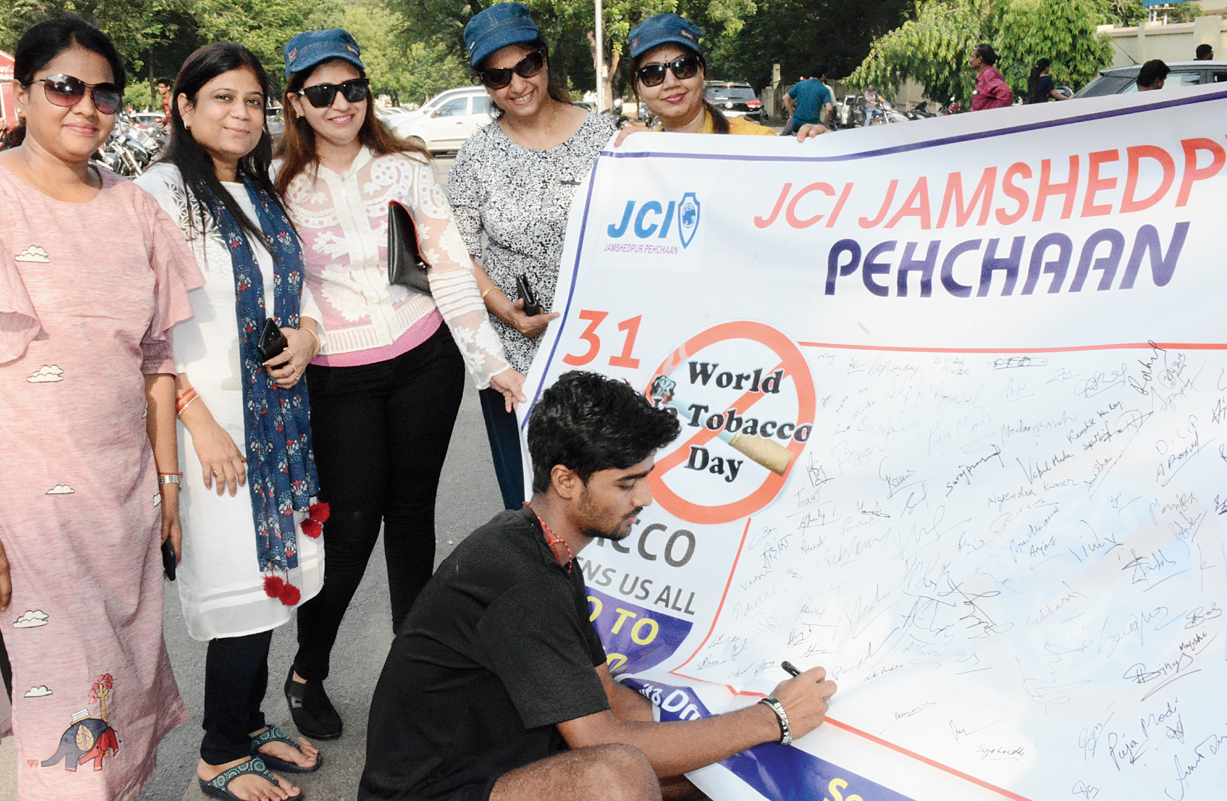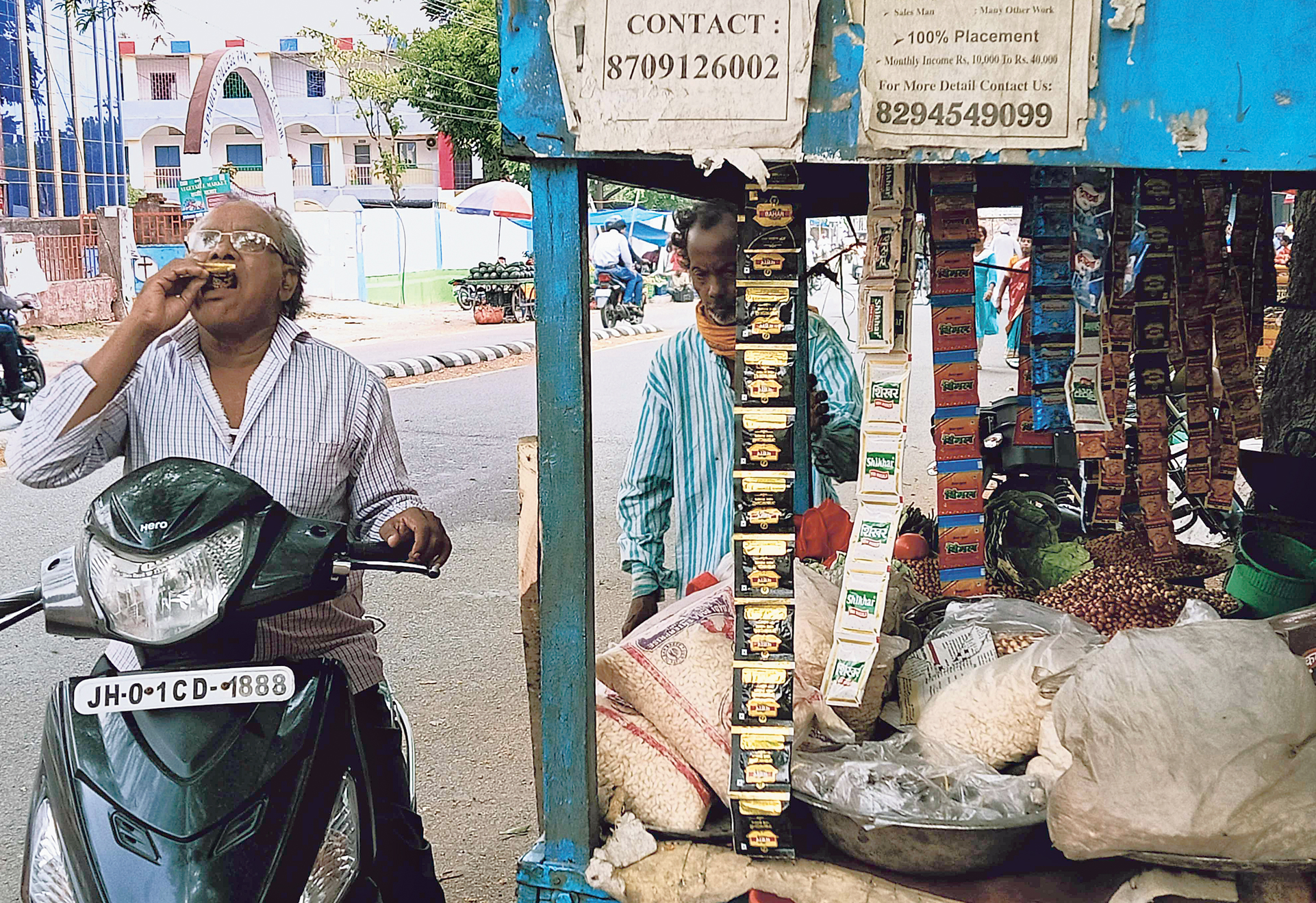After years of procrastination, the state government has finally decided to implement provisions of an anti-tobacco law that prohibits the sale of cigarettes within 10 yard of schools, colleges and hospitals, ordering all deputy commissioners to start a “yellow line campaign” to demarcate no-tobacco zones.
“All deputy commissioners will have to start yellow line campaign from June according to which they will have to draw a yellow line within 100 yards of schools and colleges to ensure tobacco products (cigarettes, gutkha and khaini) are not sold within the area. If any shop is found to violate this rule, it will be removed and its owner fined Rs 200 as per the Cigarettes and Other Tobacco Products Act (Cotpa)-2003,” R.L. Pathak, the nodal officer for the tobacco control programme in Jharkhand, told The Telegraph on Friday observed as World No-Tobacco Day.
Chief minister Raghubar Das commemorated the day by a dutiful tweet: Choose life not tobacco. But near most schools and colleges of the state, it was business as usual for cigarette shops. Sales were brisk, for instance, at Meherbai Tata Memorial Hospital for Cancer in Northern Town, Jamshedpur; near St Paul’s College in Bahu Bazar, Ranchi; and near Delhi Public School at Karmik Nagar, Dhanbad.
Pathak claimed they would act from Saturday, through June. “Even tobacco shops selling products in other areas will have to display signage warning of the health hazards of consuming tobacco,” he added, blaming, of all things, the model code of conduct for not launching the crackdown earlier.

Members of social outfit Junior Chamber International take part in a signature campaign against tobacco consumption near Keenan Stadium in Jamshedpur on Friday Pictures by Bhola Prasad and Manob Chowdhary
“The decision to effectively implement Cotpa-2003 was taken at a meeting chaired by chief secretary D. K Tiwari on May 2. But we could not implement the decision due to the model code of conduct,” he said, but promised to start from Saturday when “results will be seen in all 24 districts”.
Henceforth, the state government will fix the onus on district administrations, asking them to display monthly data on the number of raids conducted and quantum of fines collected.
“We have noticed that once decisions are taken at the state level, district administrations act and conduct raids once in a while and then forget about the issue for a long time. This makes shopkeepers return to their areas. But now, all deputy commissioners who lead the tobacco control programme will have to submit monthly reports which will instil a sense of fear among shopkeepers,” Pathak said, adding that number of raids would increase across the state.
Various government departments took a pledge against using tobacco at the state secretariat in Ranchi to observe World No-Tobacco Day.
At the district collectorate deputy commissioner Rai Mahimapat Ray administered the oath to employees, asking them to also spread awareness about the harmful effects of tobacco.
Deepak Mishra, executive director of Socio-economic and Educational Development Society (SEEDS) that collaborates with the state government in its drive against tobacco, said that the Jharkhand government had already banned the use of tobacco products in its offices.
In Dhanbad, ADM (law and order) Rakesh Kumar Dubey took a pledge asking all his officials to not use tobacco and also convince others not to use it.
“We carry out raids against shops near schools and colleges periodically and also slap fines. But sometimes, these shops come back,” he said, adding that they were now planning to increase the frequency of raids.











